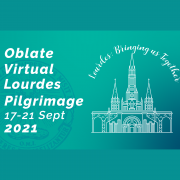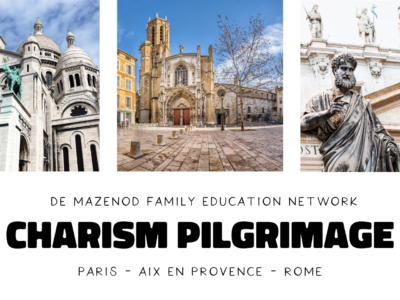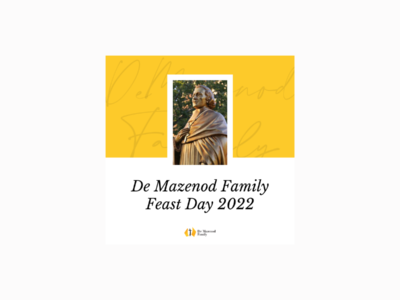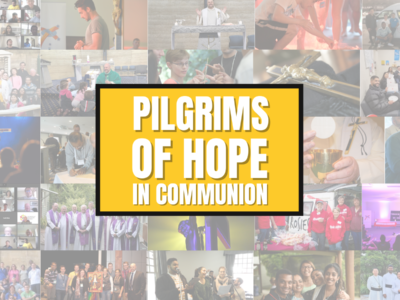By Nimmi Candappa
Having done the grocery shopping for an aunt of mine, my aunt sighed with relief that I had happened to buy something she had forgotten to write on the list. “I told my guardian angel to tell you to bring this”, she smiles. “Very handy helper – I tell my guardian angel to make sure I don’t sleep through my alarm, or to protect me when I’m walking down the steep driveway, to remind me of my appointments…” In our sophisticated society, this might seem like simple faith to some, but it can also indicate a deep awareness of the supernatural support accessible to us. This week, the Church celebrates the Feast of the three Archangels – Michael, Gabriel, and Raphael, a Feast Day to remind us living in a society insistent on scientific evidence that we are not left alone to deal with our troubles, our fears and temptations. God has already ensured we have all the support we will need, even for everyday minor concerns.
St Eugene seemed to be keenly aware of this. He not only had a strong faith but seemed to have a firm belief that God’s help was ever accessible to him. As a child, when he was faced with the prospect of an operation that terrified him, he was known to have flung himself on his knees and pleaded with God for help. Immediately, a sense of calm enveloped him, and he had enough courage to agree to the operation. He sought God in his lack of understanding. For example, when he did not understand something he was reading in the Oblate Rule book, he prays, “My God, give us the grace to understand the meaning of this third article…”, acknowledging to a friend that, “God in his goodness is helping me as usual…”. This ready willingness to run to God’s help, and expect to receive the help, is spurred on by St Eugene’s gratitude, intimate connection and a sense of safety in God. In expecting God to be near, St Eugene indeed senses God near. One time, he writes about their daily prayer, that it “…brings Heaven so close to us that we could believe we were there, so tangible is the presence of God our Saviour to all our hearts…” He refers to God as “…my tender father, who carried this rebel on your shoulders, warmed him against your heart…”
How easily can we express such intimacy with God? Do we believe that God cares about the minor aspects of our life? Have we even given God a chance to be involved in these aspects, or do we think God has more important things to attend to? To be warmed against someone’s heart is to be held close – when have we felt God that close?
In the next fortnight, find some time to sit with these thoughts: when have I felt God holding me close? How often do I look to find God in my everyday events and trials? Do I truly believe I have all the help I need to deal with life?








